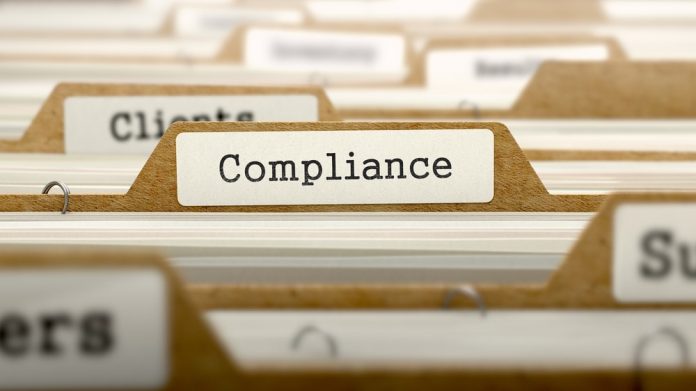By Todd Bryant
To the entrepreneurial spirit, starting one’s own business is no doubt exciting. But taking care of bureaucratic procedures typically is not what one has in mind when they think of doing business. Startups, in particular, fight an uphill battle, because launching a business is associated with a number of licensing requirements.
Yet, without remaining compliant with regulatory, financial, insurance or surety bond requirements at all times, it’s likely you won’t stay afloat long enough to see your business thrive. For this reason, it is good to know with certainty what you must take care of as you prepare to launch your business.
Here is a list of 5 common categories that new business must be in compliance with.
Planning Your Business
While a business plan is not a regulatory or administrative compliance requirement for businesses, without one your business is as good as non-compliant.
Practically speaking, your business plan is not only a way to plan how you will enter the market, and who your customers will be, but it is also an important asset when looking for funding. Whether you apply for a loan from a bank or look for funding from private investors, all of them will ask for your business plan when assessing whether or not to help you.
For startup businesses, the Small Business Administration (SBA) offers a host of compliance tips from planning to launching your business. See their business plan guide to get a sense of what you should include in yours.
Registering Your Business and Determining Its Structure
A central piece of the compliance puzzle is concerned with registering yourself and your business. To be able to launch your business, you will typically need to register it as an entity in your state, commonly with your Secretary of State. If you do business in states other than the one you are located in, you may also need to register in those states.
At the time, you will usually be required to determine the type of structure you want your business to have. From a sole proprietorship, through various types of partnerships to different forms of corporations, the structure of your business is really important. It determines the amount of taxes you will need to pay, your personal liability, and even the amount of paperwork you’ll have to handle.
While you’re at it, you will most likely also be asked to get a state tax ID number or an Employer Identification Number (EIN) from the Internal Revenue Service (IRS), in particular if you will have employees.
An additional bit of legal compliance is the requirement to get a license or permit for your business. Some business licenses, such as for becoming a freight broker, are required and regulated on a federal level. Others, such as contractor licenses or auto dealer licenses, are regulated on a state level. There are varying licensing requirements for different businesses. Contact your state Department of Business Licensing to find out more about the specific licensing requirements you may need to comply with.
Getting Insured
Obtaining an insurance policy is a common requirement when opening a business. There are several types of startup insurance, some of which are frequently required by law – such as general liability insurance and workers’ compensation insurance.
Others, such as a property liability insurance may not be required by law, but you may still want to consider getting one in order to protect your business from damage to your property or equipment. Or you may get a business owners policy that bundles together several policies, such as general liability and property liability.
Getting Bonded
On top of getting insured, you are also likely to be asked to get bonded. Surety bonds are financial guarantee agreements that, unlike insurance (which protects you in various ways), serve to protect your customers or clients. If through dishonesty, fraud or even simple disregard you cause someone losses or damages, they can file a claim against your bond to receive compensation. The surety that backs your bond will then extend compensation to claimants but ultimately you will need to repay the surety for such coverage.
Much as an insurance, to get a surety bond you need to pay a premium. The amount of the premium you need to pay largely depends on your personal credit score. Other factors are also considered by the surety, and you can actively work on improving your bond cost by, for example, improving your credit score, submitting proper personal or business financial statements, etc.
Managing Your Finances
Properly managing your finances is a prerequisite for your business to run with ease. There are several important things you need to consider here.
On a practical level, you will need to separate your personal and business finances, by opening a business bank account. You will also need to pick a method of business accounting, such as the accrual or cash method.
Establishing a business line of credit is also an important step at this stage. A credit line will help you build a strong credit history over time, reduce the amount of prepayments for services or products as well as help you negotiate supply agreements.
Doing the accounting by yourself may be quite difficult, so you should also consider getting the help of a professional, such as a certified public accountant (CPA).
Other Compliance Tips
Can you think of other important compliance tips that should be included here? Let us know in the comments!
Todd Bryant is the president and founder of Bryant Surety Bonds. He is a surety bonds expert with years of experience in helping business owners get bonded and start their business.
Compliance stock photo by ESB Professional/Shutterstock







